SUMMARY
This is AI generated summarization, which may have errors. For context, always refer to the full article.
![[OPINION] Navalny pulls a Ninoy in Russia. Who will pull a Navalny in the PH?](https://www.rappler.com/tachyon/2021/01/navalny-ninoy-IMHO.jpg)
Those old enough to remember August 1983 or those who studied well the modern history of the Philippines (I happen to belong to both of these groups) must have felt an eerie sense of familiarity when watching the drama that was taking place in Europe on Sunday, as the Russian opposition leader Alexei Navalny delivered on his well-publicized promise to return home, to Moscow, from his involuntary five-month exile in Berlin, where he recuperated from the poisoning by a Novichok nerve agent last August.
Much like Ninoy Aquino, who was returning from his US exile in August 1983 with the aim of challenging (or at least trying to talk sense to) Marcos, Navalny was fully aware that such a move entailed a serious risk to his freedom, health, and life due to the Russian regime. More so since he holds President Putin directly responsible for the attempt on his life, though Russian authorities found no reason to start an investigation into Navalny’s poisoning. On the contrary, the opposition leader himself was put on a wanted list shortly before his return for allegedly violating the terms of his suspended sentence for alleged embezzlement, charges he has always vehemently denied. And just recently the authorities launched a new criminal case against him on fraud charges, which was largely understood as a signal for him not to return home.
Yet he did. And thus it was little surprise when officers dragged him directly from passport control at Sheremetyevo airport in Moscow, where his flight was diverted at the last minute as hundreds of his supporters were waiting to meet him in Vnukovo airport, some 40 kilometers to the south. His pleas to be accompanied by his lawyer were ignored and little is known about what comes next, though the possibility of a new trial certainly cannot be excluded.
This would have likely been the fate of Ninoy Aquino as well, back in 1983, had he not met a violent death as he was descending from the plane that took him home to Manila. While the case of his assassination has never been solved, it started the well-known chain of events leading to the EDSA revolution in February 1986, which removed Marcos from power after roughly the same time that Putin has hogged it in Russia.
Like Marcos in the 1980s, Putin today is also an aging dictator, a shadow of his former self, his once sky-high popularity with the masses all but gone due to a plethora of reasons, with the plummeting economy being a natural chief suspect. Whether Putin is also ailing like Marcos we can’t quite tell since his health is treated like a state secret in Russia. But we certainly haven’t seen much of him lately, and there are definitely no macho stunts like shirtless horse-riding or scuba diving for ancient amphorae, which he had made his trademark in the past.
After recent changes to the Constitution, he could stay in power until 2036 (and another change can always be easily conjured up, as the last one showed), but eventually somebody else will have to take over. But Russian politics today resembles a howling wilderness, with no heir apparent and no sound political structures capable of producing presidential material. Putin has made sure to look indispensable by weeding out any viable competition. Yet he needs to formally maintain the artificial structures of the power vertical he built. He needed to stuff institutions like State Duma, the lower house of the parliament, with his loyal minions.
For years, the pro-Kremlin United Russia party has dominated in the elections, but ever since Alexei Navalny started his anti-corruption drive a decade ago, and with the help of his popular blog and later YouTube channel, rebranded the United Russia Party into “Partiya Zhulikov i Vorov” (The Crooks and Thieves Party), things got complicated for the Russian officialdom. Today no candidate of the state party can be assured of winning, thanks to the “smart voting” introduced by Navalny in which people are encouraged to unite and vote for the most popular rival of each and every United Russia candidate, no matter from what party he or she may be. It’s more than likely that Kremlin will make sure Navalny is out of the way when election time comes so that he can’t cause any more upsets like he did in the past.
Yet his very presence in Russia, even if he was to be in and out of prison like he was for the last couple of years, can re-energize the fragmented and largely invisible opposition and civic society. “I know that I’m right. I fear nothing,” were the last words he managed to say to the press as he was walking towards the passport control.
That in itself mirros Ninoy Aquino’s attitude. This spirit can be contagious and can spark a revolution of the mind, where people are yanked out of their political apathy and start taking initiative. This to me captures what Ninoy Aquino achieved with his return. I don’t think one has to die to do what Ninoy did; it’s enough to show you have no fear and convince others to follow your example. Whether Navalny can pull this off remains to be seen, but I believe Filipinos should pay attention to what happens in Russia for their own sake.
As a long-time journalist with a keen interest in both Russia and the Philippines, and as a former correspondent in Moscow, I have closely watched Putin’s autocratic rule from the moment it was introduced and enforced, with everything that has accompanied it, including the destruction of independent media under the pretext of fighting the oligarchs. And I‘m sad to say that a lot of it can be observed in today’s Philippines, too.
The weaponization of law against media, civil society, and opposition figures is one aspect, but there are other troubling signs that democratic institutions can no longer function the way they should to prevent the country from sliding back to Marcos-style (or Putin-style) autocracy. For example, Batasan, the lower house of the Philippine Congress – just like the Russian State Duma – has been turned into a rubber stamp, with the pro-Duterte majority capable of such outrageous acts like forcing the biggest media organization in the country off air, thus robbing many people in the archipelago prone to natural disasters of their trusted source of news – news than can literally save lives. That Liberals lost quite a few of their solons to the new majority was perhaps to be expected, with post-election turncoatism being the usual order of the day. But the fresh plans to do away with the party-list system in the ongoing Cha-Cha process could wipe out even the last remaining vestiges of the authentic opposition. And that could drive the Philippines further along the non-democratic trajectory that Russia has traveled over the last 20 years.
So the real question for Filipinos reading this should not be whether Alexei Navalny can pull a Ninoy Aquino in Russia to get it back on the democratic path, but rather, who will pull an Alexei Navalny in the Philippines to stop the country from its slide towards autocracy. – Rappler.com
Pavel Vondra is a senior editor of Czech Radio Plus, a national public broadcaster in the Czech Republic. He worked as Czech Television‘s correspondent in Moscow in the past and also authored a book about the history of the Philippines, a country to which he feels a strong connection.
Add a comment
How does this make you feel?
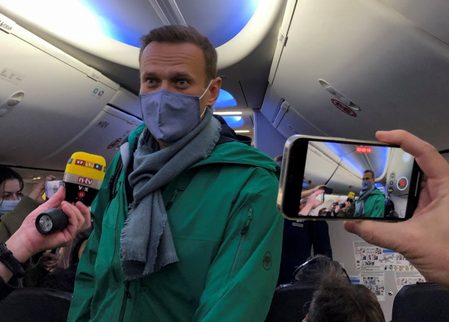
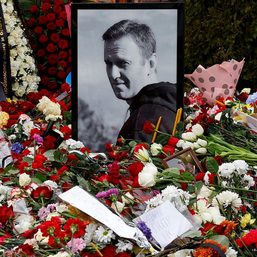
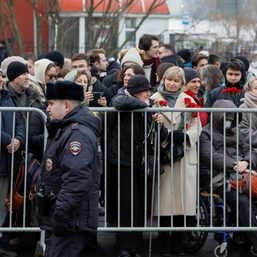
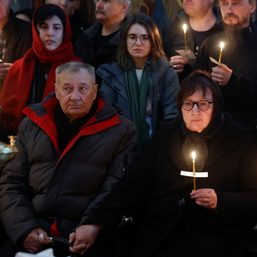
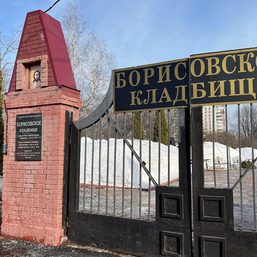
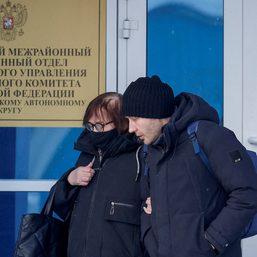
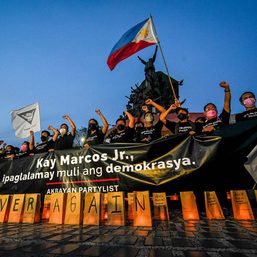
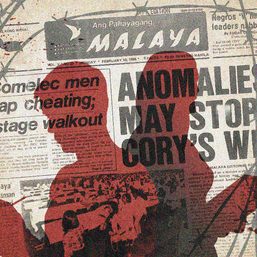
![[Newspoint] Hitting rock bottom](https://www.rappler.com/tachyon/2023/12/Newspoint-hitting-rock-bottom-December-2-2023.jpg?resize=257%2C257&crop=283px%2C0px%2C720px%2C720px)
![[Newspoint] The Ninoy constituency](https://www.rappler.com/tachyon/2023/08/TL-Ninoy-constituency-August-25-2023.jpg?resize=257%2C257&crop=334px%2C0px%2C720px%2C720px)
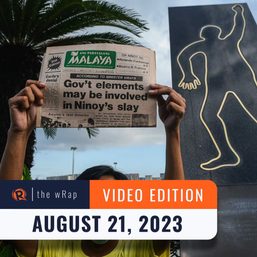
There are no comments yet. Add your comment to start the conversation.